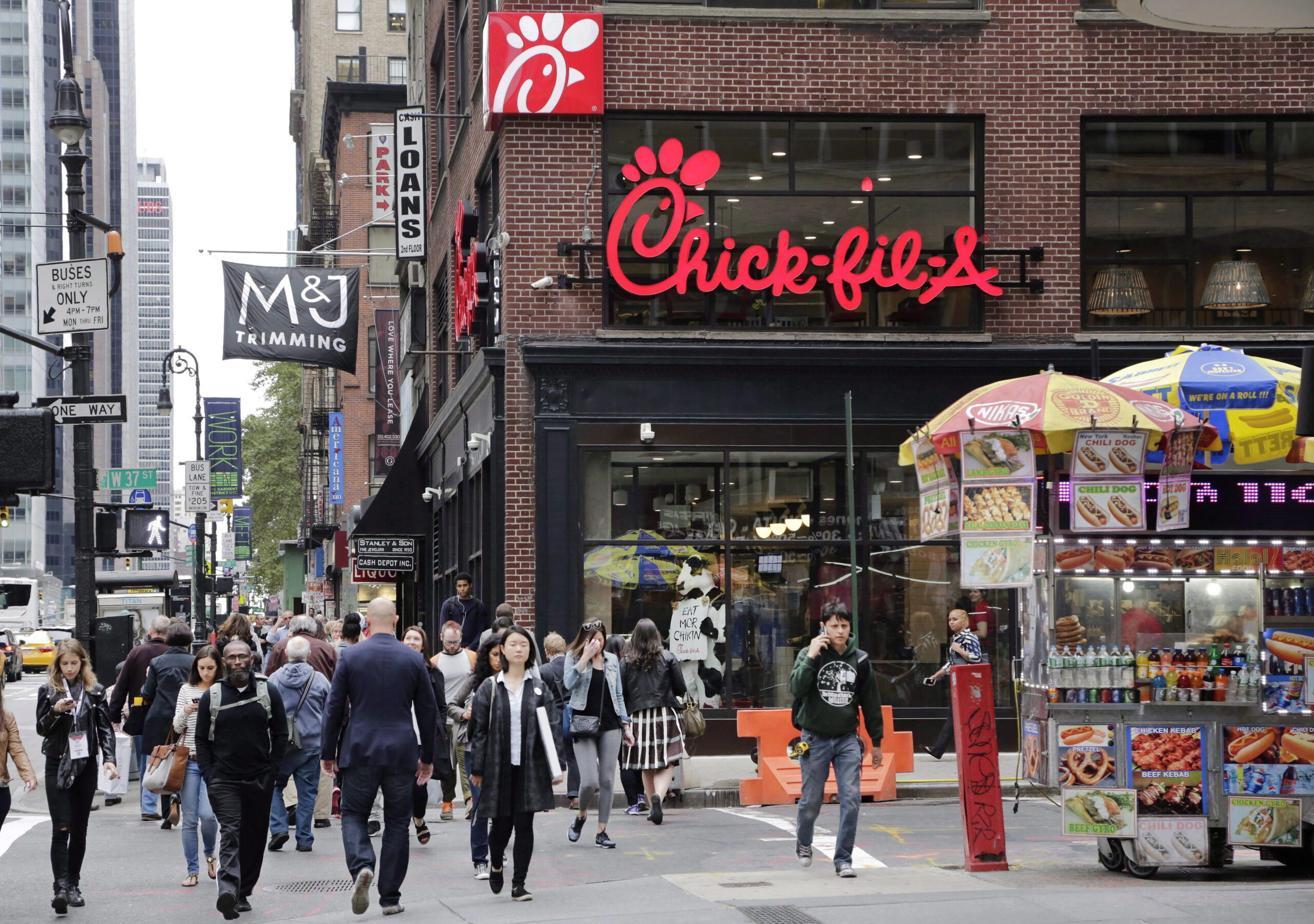Will Chick-fil-A be serving its chicken with a side of homophobia?
Yesterday, the fast food chain announced it will be expanding north of the border, opening its first location in Toronto. However, not even its infamous breaded chicken sandwiches and waffle fries can knock back its unsavoury stance on LGBTQ2 issues.
What’s the controversy?
The US company, which has more than 2,300 restaurants across the States, first came under fire in 2012 after it was revealed that the company’s charitable organization, WinShape Foundation, had donated millions of dollars to groups and charities that oppose same-sex marriage and fund gay conversion therapy.
Two years before that, according to Equality Matters, the company donated millions of dollars to other anti-gay causes including the Family Research Council, which is classified as an anti-gay hate group by the Southern Poverty Law Center. On its website, Family Research Council states that “homosexual conduct is harmful to the persons who engage in it and to society at large.”
In a 2012 radio interview, Dan Cathy, Chick-fil-A’s chief operating officer said that he, as well as the fast food chain, does not support same-sex marriage because of their religious values.
“We are inviting God’s judgment on our nation when we shake our fist at Him and say, ‘We know better than you as to what constitutes a marriage,’ and I pray God’s mercy on our generation that has such a prideful, arrogant attitude to think that we have the audacity to define what marriage is about,” he said.
What was the reaction?
Even though the chain was met with widespread controversy following Cathy’s interview and news of the company’s donations, it was also met with praise by advocacy groups including the National Organization for Marriage, which was established in 2007 to work against the legalization of same-sex marriage in the US.
The news of Chick-fil-A’s controversy became widespread, and advocacy groups called for a boycott of the restaurant and staged protests outside restaurants across the country. Chick-fil-A’s popularity and sales rose despite the controversy.
Since then, Chick-fil-A has been working to restore its image by vowing to not support groups with anti-LGBTQ2 agenda. The company has also been working with LGBTQ2 activist Shane Windmeyer. Despite these efforts for good publicity, reports from 2016 showed the company donated $1.8 million to three non-profits known for anti-gay beliefs and practices.
In an interview with CityNews following the announcement of the Toronto expansion, Rich Matherne, vice president of Chick-fil-A International, said he “could not make a commitment on behalf of the company,” when asked if the company would no longer fund any anti-gay groups following their expansion to Canada.
Matherne also didn’t give a definitive answer when asked if he subscribed to the same beliefs the company has supported in the past.
Why Toronto?
In this week’s press release, Tim Tassopoulos, the company’s chief operating officer, said that Toronto’s “diverse and caring people” and “vibrant restaurant culture with a deep talent pool” aligns with the company’s values.
In a Globe and Mail interview with restaurant industry analyst Robert Carter, he predicted that Chick-fil-A in Toronto would do well despite its past. “There’s definitely legacy brand issues — but I don’t think that’s going to impact the brand here in Canada,” he said. “That type of controversy has died down.”
But is that true? Expansion into a new country doesn’t mean the erasure of past wrongdoings. Toronto’s own fight for LGBTQ2 rights has always been powerful and far-reaching. Most recently, it’s been in the community’s response to the missing and murdered queer and trans people in the city, protesting the provincial government’s plan to scrap the sex-ed curriculum that would remove gender identity from the program, and in 2016, Black Lives Matter Toronto’s sit-in at Pride, which demanded more inclusion, funding and spaces for Black and Indigenous queer people.
In a city which has been ranked third most LGBTQ2-friendly in the world, has flourishing and dynamic LGBTQ2 communities and neighbourhoods, and in a country which is over 10 years ahead of the US on same-sex marriage and a world leader on LGBTQ2 rights, there may be more resistance than Chick-fil-A anticipates.


 Why you can trust Xtra
Why you can trust Xtra


